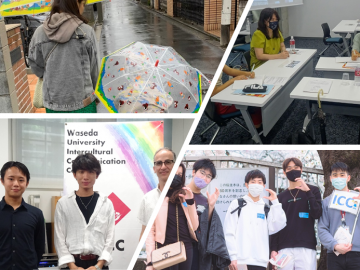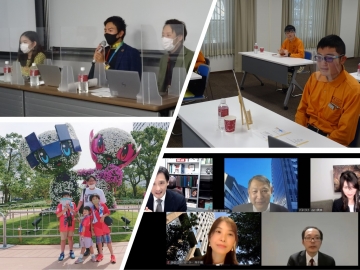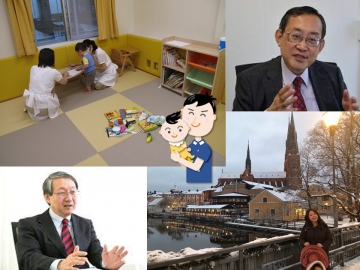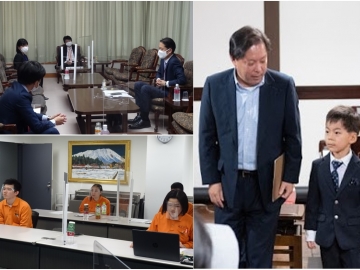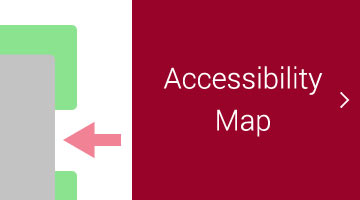Public Lecture
When men are responsible for family care: Aiming for a balance between work and care
Date: October 7th, 2016 (Fri.)
Location: 3rd Floor, Building No. 26
Speaker: Masatoshi Tsudome (Professor, Ritsumeikan University; Secretary-General of the National Network for Male Carers and Supporters)
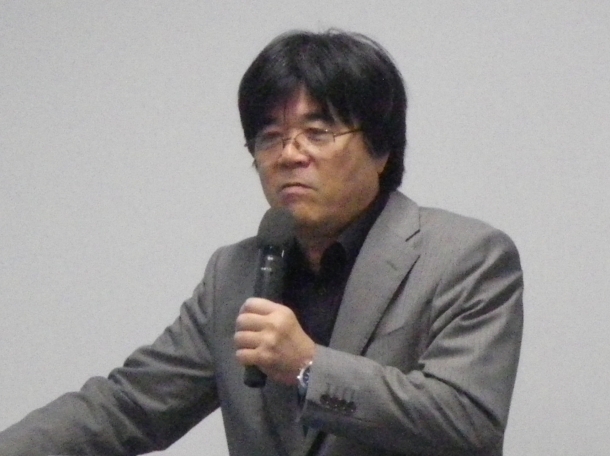
▲ Professor Tsudome speaking about creating a society in which ways of living and working with the inclusion of care will be standard
Summary
The speaker invited to give this lecture has launched a support network for male carers and is involved in nationwide activity. In the lecture, he used numerical data to describe the present reality of various issues, including the views of carers and care recipients encountered through support activities, the social problem of aging carers and supporters, the diversification of types of care, and the prolongation of home nursing giving rise to severe problems. The audience heard how, as we enter an age in which “anyone can become a giver or a recipient of care,” we need a society and workplaces where work can be balanced with care, and that it is essential that male carers should be given a platform to express themselves. Finally, support based on a system of working and thinking closely with caregivers will be the most reliable way of preventing people from feeling forced to quit their job when faced with the necessity of providing care for a family member.
Participant feedback “Carers, join hands!”
What I learned from this lecture was the harshness of the present reality surrounding care, but also the hope offered by a network of carers.
The present reality surrounding care, as conveyed by various statistical data and descriptions of personal experiences, was more serious and complex than I had previously understood from media reports and the like. I became aware that, as society goes through major changes, the relationships between carers and those they care for, the situations of people in need of care, and the forms of care have all become so diverse and complex that they cannot be explained by a simple statement of “This is how things are now.” I was made to realize that the structure of problems related to care is not so straightforward that we can just say, “This is the problem, so this is what we should do.”
But as well as the “problems” mentioned above, the lecture also placed weight on the “hope” evident in the creation of a network for male carers. Creating a platform where carers can share their feelings and experiences of care will help them to realize that they are not alone, and that the experiences of others can be useful. I think this is important now and will be so in future, given the spread of a lifestyle in which “anyone can become a giver or a recipient of care.” The lecture ended with the message that the standard for society should be based not on “ways of living and working to the exclusion of care” but on “ways of living and working with the inclusion of care.” I think it will be an important task from now on to create systems that will make that idea a reality.
This year, I will start working and my father will turn 60. I would like to use this lecture as a stimulus for thinking how to balance work with care in readiness for situations “when men are responsible for care,” both as a social issue and as a personal matter.
Taihei Kojin, 4th Year, School of Humanities and Social Sciences

